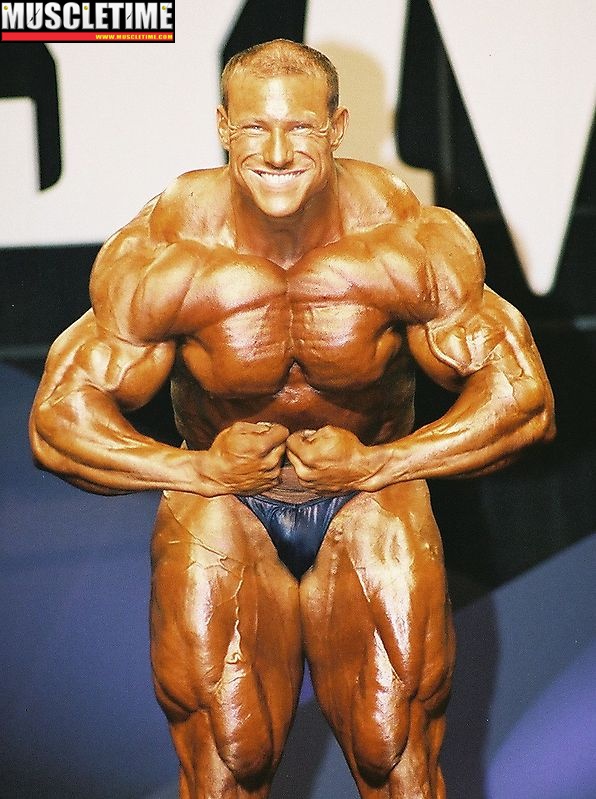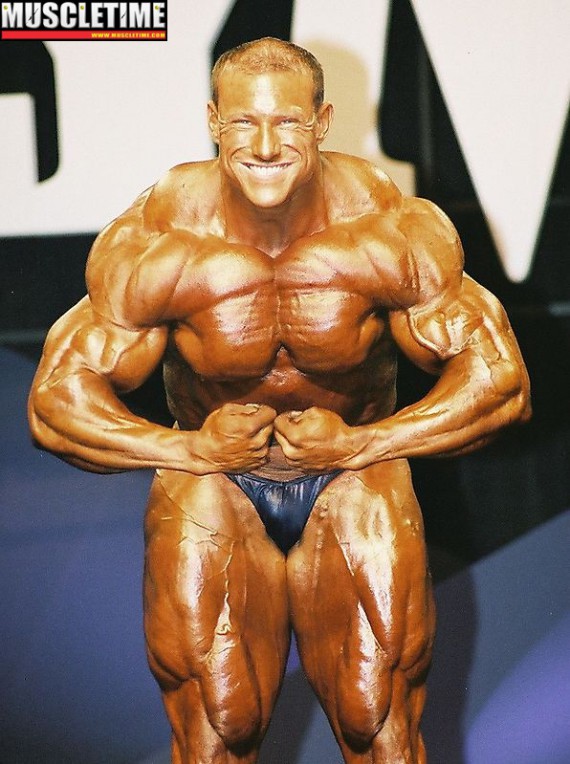
There have been unsubstantiated rumors of a steroid bust involving Art Atwood for several months. David Jacobs, known by bodybuilding fans as Branch Warren’s training partner, was rumored to be a steroid dealer turned police informant who sold 100 vials of counterfeit steroids to Art Atwood in early May 2007. However, court documents revealed that Art Atwood was never arrested, charged or convicted of any type of anabolic steroid possession, steroid distribution or steroid conspiracy charge(s). Technically, Art Atwood was never “busted” for buying/selling steroids.
Today, the New York Times confirmed that IFBB Pro Bodybuilder Art Atwood bought 100 vials of counterfeit anabolic steroids from an unnamed police informant back on May 7, 2007. Atwood was arrested moments later, not on a steroids violation, but for a minor traffic violation. Clearly, police could have arrested and charged Art Atwood on a felony steroid possession or distribution charge, but they did not. We now know why…
Three days later on May 10, 2007, a grand jury indicted David Jacobs on three counts of “conspiracy to possess with intent to distribute anabolic steroids” and and one count of “unlawful user of a controlled substance in possession of a firearm.”
In November 2007, it was publicly revealed that David Jacobs would only receive probation as part of a plea agreement; in exchange, he told the media he would fully cooperate with federal authorities and release the names of professional athletes to which he sold anabolic steroids.
Today, the New York Times revealed that Art Atwood also made a deal with Assistant U.S. Attorney Samuel Cantrell in which he would completely avoid jail time; in exchange the feds have his full cooperation. The feds enlisted both Art Atwood and David Jacobs to help them with Operation Raw Deal. But the New York Times was unable to uncover the final target of the multi-state investigation.
It is unclear whether or not Art Atwood will ever be charged with a crime. But Art Atwood and David Jacobs are still cooperating in an ongoing federal investigation meaning customers who bought anabolic steroids from them could still face criminal prosecution.
The New York Times articles provides an interesting insight into “steroid prosecution methods and goals.”

About the author
Millard writes about anabolic steroids and performance enhancing drugs and their use and impact in sport and society. He discusses the medical and non-medical uses of anabolic-androgenic steroids while advocating a harm reduction approach to steroid education.

Leave a Reply
You must be logged in to post a comment.